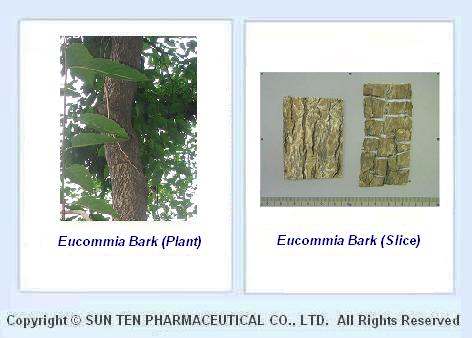Eucommia Bark (Cortex Eucommiae; Du Zhong)
TCM Herbal Story
Eucommia Bark (Cortex Eucommiae; Du Zhong)
Long ago, there was a young burlak named Du Zhong who worked near
Hoping to find a herb to relieve these symptoms, Du Zhong left his hometown to search for such herb. Luckily, he found an elder with knowledge on herbs in the mountains just before his rations ran out. The elder handed him a piece of tree bark after hearing the description of the bulaks’ symptoms, and told Du Zhong that he could find this herb in another mountain peak.
Du Zhong then started to climb the mountain to gather herbs and met a woodcutter in halfway. Knowing that Du Zhong was aiming to reach mountain peak, the woodcutter tried to convince him to turn back, as the path to mountain peak was very steep and dangerous. Determined to find the herb, Du Zhong kept climbing and finally found the tree that matched the tree bark from the elder. Unfortunately, being exhausted and hungry, he fell down from the mountains when he was collecting the herb.
The rest of the burlaks started to look for Du Zhong’s body when they heard this tragic news. When they found his body, he was still holding the collected tree barks. The burlaks then ate the tree barks, and the pain in the loins and knees were relieved. As a result, they named this tree bark after Du Zhong to memorize his bravery and kindness.
Eucommia Bark is the bark of Eucommia ulmoides Oliv. Its properties are sweet, slightly acrid, and warm. It enters through the kidney and liver.
Actions & Indications:
- Toniifes the Liver and Kidneys, strengthens the sinews and bones
- Aids in the smooth flow of qi and blood
- Calms the fetus
- Recently used for dizziness and lightheadedness (hypertension) from rising Liver yang
Caution & Contradiction
- Contraindicated in heat from yin deficiency
- According to some traditional sources this herb antagonized Radix Scrophulariae ningpoensis (Xuan Shen)
The original article is from Brion Research Institute, translated by Sun Ten Pharmaceutical Co., Ltd.
For Chinese/original version, please go to:
http://www.brion.org.tw/index.php?option=com_content&task=view&id=1067
